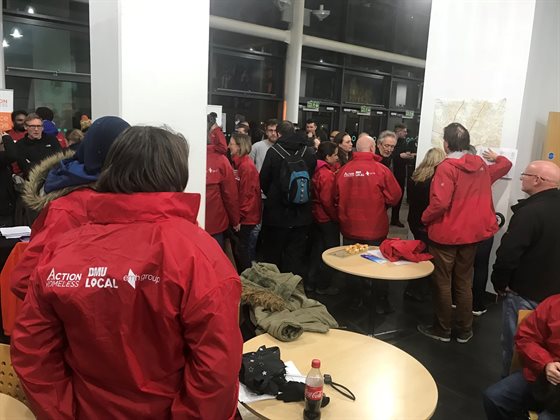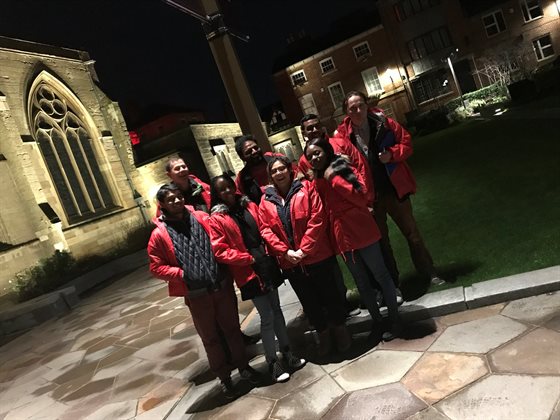Work to explore the extent of street homelessness in Leicester has been highlighted in a new report looking at efforts to tackle the problem across Europe.
The European End Street Homelessness report, which is released today aims to share the findings of different approaches and create a toolkit of the best ideas and approaches to help people stay off the streets.

Set up in 2015, the campaign has so far resulted in a successful network of European city campaigns, mobilising thousands of community members and challenging established ways of working that have previously failed people experiencing homelessness. Its organising principles are community action and Housing First, an approach which sees people get housing first, before providing the specialist support needed.
Leicester was one of the cities chosen for the campaign. De Montfort University Leicester (DMU) was part of a network that carried out the first homeless survey in the city for 16 years, finding out underlying health needs among the vulnerable population. Students helped carry out interviews, inputted data and supported the mass survey.
Of 93 homeless people surveyed, 95% had medium to high vulnerability scores and two in five said they had become homeless after a traumatic episode.
DMU’s Professor of Housing and Social Inclusion Research, Jo Richardson said: “Homelessness is a complex issue requiring an interdisciplinary response, but with a home at the heart of a solution. The University was well placed to be a lead partner, drawing on a range of research and professional expertise and involving students across disciplines to share ideas and better understand the problems that homeless people in our city face.”

The report details the successes, case studies and some of the challenges faced. Leicester features its work to bring organisations across the city together to talk about homelessness, creating a more co-ordinated approach.
Action Homeless, Leicester City Council, Leicestershire Police, Leicestershire Fire and Rescue, The Y, Inclusion Healthcare, Diocese of Leicester and DMU’s public engagement team DMUlocal were involved and it led to the creation of the city’s first Homeless Charter.
“The campaign in Leicester demonstrated clearly the merits in different members of communities coming together to tackle homelessness,” the report praised.
Mark Grant, CEO of Leicester's Action Homeless, which led the work, said: "“Being part of the European End Street Homeless Campaign has given us an invaluable opportunity to learn from other cities on how they are tackling the problems of rough sleeping. We have learnt so much and have been able to apply this to tackling homelessness here in Leicester, such as our own Connections week in 2017. Being able to share experiences and to explore new ideas has been invaluable, but most importantly it provides us with the support and encouragement to continue to meet the challenge of reducing street homelessness in Leicester.”
Mark Charlton, Associate Director of Public Engagement, said: "We had more than 80 student volunteers working in teams with our partners in the city to deliver this. The outcomes have informed how the issue of homelessness is tackled in the city and our students benefitted from the experience of working with agencies and professionals who are on the frontline in supporting those who find themselves living on the streets.”
Overall, the campaign has trained and mobilised 2,836 volunteers, completed more than 2,600 surveys and moved 344 homeless people into permanent accommodation.
A campaign spokesman said: “The majority of the campaign cities have had no additional funding to carry out their campaigns, yet have all delivered meaningful change through a range of activities such as the setting up of new partnerships, engaging local communities to take action and demand local policy changes, identify available housing, and develop a system wide approach to how cities tackle homelessness.”
Posted on Monday 24 June 2019